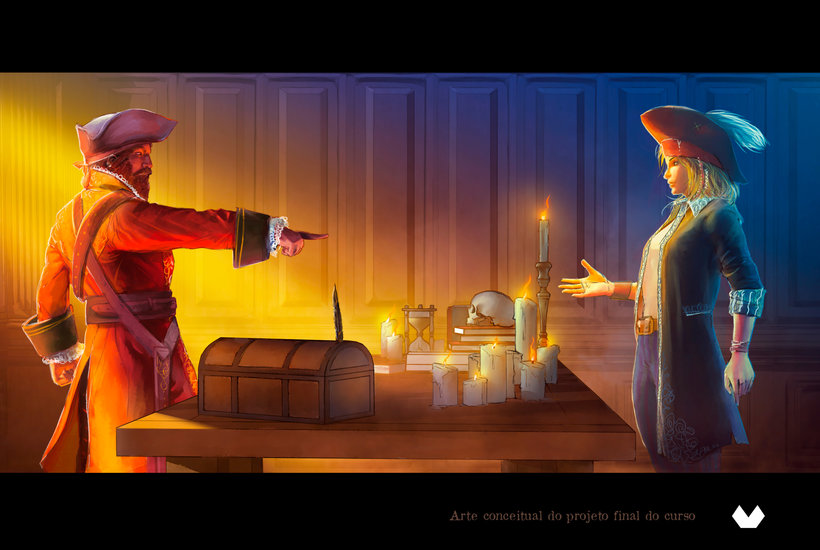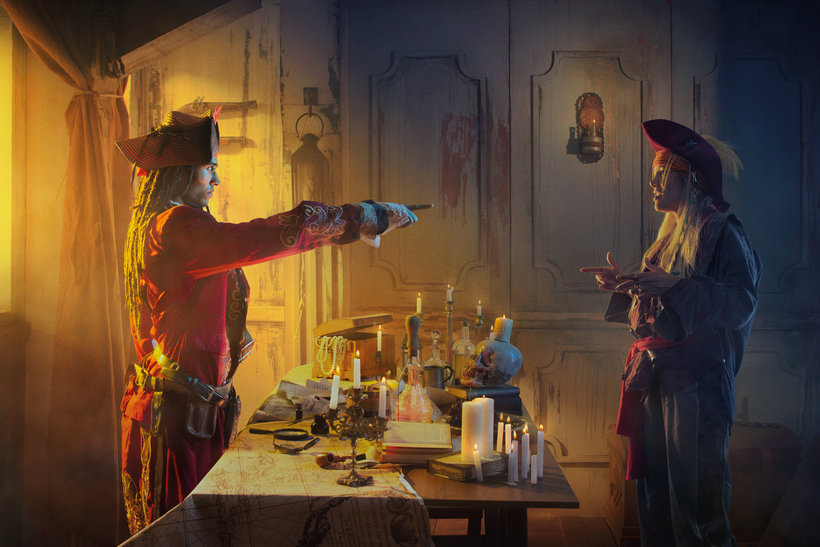Narrative Photo Essays with Models and Sets
Course final project
A course by Samuka Marinho , Photographer, Illustrator, and Editor
About the final project for: Narrative Photo Essays with Models and Sets
Narrative Photo Essays with Models and Sets
“Thanks so much for making it this far! I hope you've been inspired and entertained along this learning journey. To make organizing your project easier, I've prepared this list of essential steps: • Choose the theme and create a descriptive script or a visual script (storyboard). Develop a concept of the main scene to preview the atmosphere of your project or be armed with good references. • With the subject in hand, select your casting, assemble your costumes and prepare the set or location. • Now you will click everything. Leave as little as possible for post-production. If the model is not on the set/location, take note of heights and distances from the camera to the model/object, positioning and power of the flashes, and anything else that might help you set up the same environment conditions for the following shots. • Then choose the best photos. Remember that the harmony of the final scene will depend a lot on how well the elements fit together. So, in addition to giving preference to the best action, consider selecting photos with the same light direction and perspective. • Finally, we come to the post-production stage. If you followed the previous steps correctly, this part will be the most rewarding. That's when all your efforts take on definitive form. Crop your photos using the tools that were most useful: "Paths", "Color Channels", "Magic Wand", or even plugins and "Actions". • With everything cut and positioned, it's time to play around with the color channels, curves and brushes. How much you should abuse all of this will depend on your criteria as an artist, your visual baggage, the reference you are using, how much you anticipated during the production of the clicks or the deadline you have. • To help with the harmony, add some particles and/or textures that can cover up irregularities in the manipulation, scaling or resolution of some photo. • Finally, before closing the files, check the channels for shadows and highlights. No shadows that are too dark or excessive lights/brightness that don't leave color information. Concept art


Partial transcription of the video
“Final project Thank you very much for having attended the course so far. I wanted to complement with some learnings that I acquired when I produced the project "Corsários". As I mentioned before, for this project, I made more than 40 000 clicks. This is because it is very important to have a vast visual library, an organized, voluminous and varied image bank. This will help you in composing the final project or anyone else who does. There is the possibility of using third-party image bank, but you should use it sparingly. Most images downloaded from these image banks are not for exclusive u...”
This transcript is automatically generated, so it may contain mistakes.
Course summary for: Narrative Photo Essays with Models and Sets
-
Category
Photography & Video -
Software
Adobe Photoshop -
Areas
Communication, Digital Photography, Fine-Art Photography, Narrative, Photo Retouching, Photography Post-production, Storytelling

Samuka Marinho
A course by Samuka Marinho
Samuka Marinho is an illustrator, photographer, and photo editor whose work has been featured on book and album covers, exhibited in galleries, and included in specialized publications. He has also collaborated on advertising campaigns awarded with the Cannes Gold Lion. But his most ambitious project to date is Corsários, a 192-page photographic narrative depicting the so-called Golden Age of Piracy in over 400 carefully crafted scenes.
- 100% positive reviews (9)
- 261 students
- 14 lessons (1h 25m)
- 21 additional resources (9 files)
- Online and at your own pace
- Available on the app
- Audio: Portuguese
- Portuguese · Spanish · English · German · French · Italian · Polish · Dutch
- Level: Beginner
- Unlimited access forever




